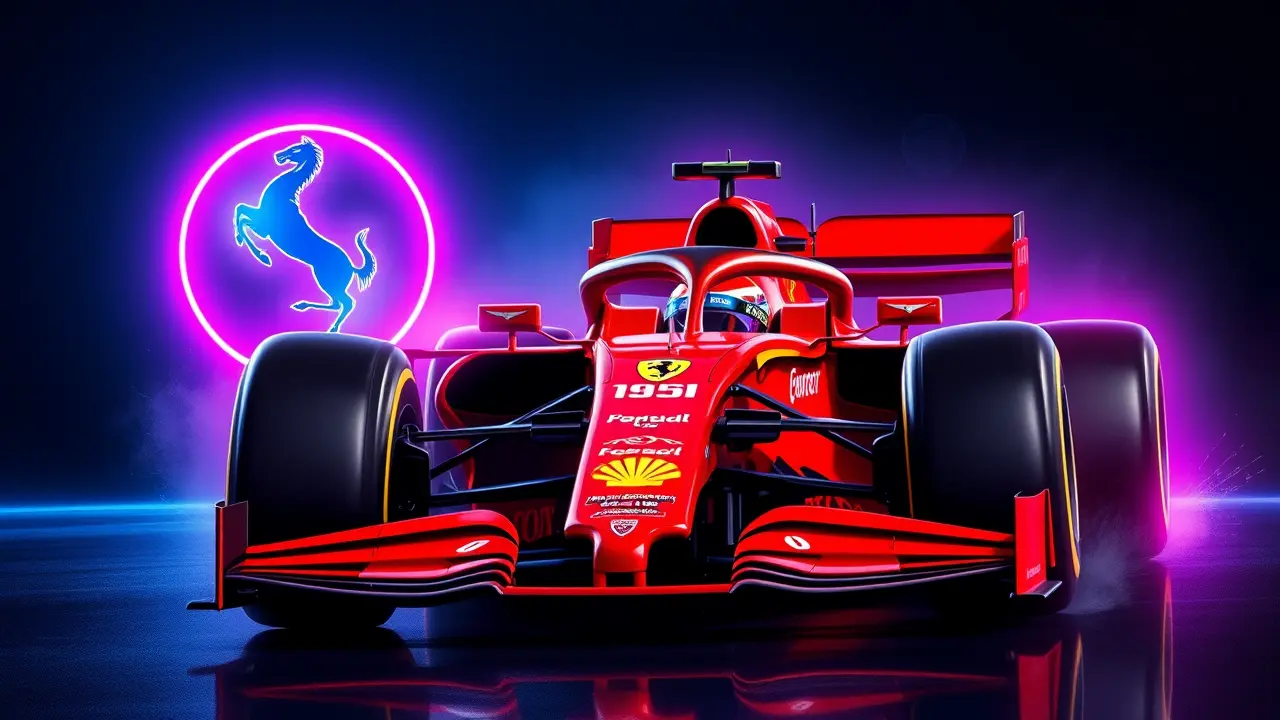Charles Leclerc Disappointed by Ferrari's Recent Lack of Podium Finishes
The familiar sting of disappointment is a feeling Charles Leclerc and the entire Ferrari outfit are grappling with once more, a sentiment as classic to the Scuderia's modern era as the iconic red of their livery. When asked if the team could salvage any meaningful progress from the season's final six Grands Prix despite what was described as a 'depressive state' following a string of underwhelming results, Leclerc's response was tellingly measured, a portrait of a driver balancing raw ambition with the stark reality of his machinery.'I wouldn't say I'm depressed,' he clarified, the words carefully chosen, 'Of course, I'm probably upset and disappointed that we can't seem to get on the podium. But the whole team is facing this.' This isn't just one man's frustration; it's the collective burden of a legacy that weighs heavier than any championship trophy. For a team like Ferrari, where history is written in victories and the very air in Maranello is thick with the ghosts of Ascari, Lauda, and Schumacher, merely finishing in the points is akin to a defeat.Leclerc articulated this existential pressure perfectly, stating, 'As Ferrari, we know what our goals are and what we should be doing. At the moment, we haven't achieved what we wanted – and whenever that happens, there is disappointment, including for me.' This is the Ferrari paradox: an institution so steeped in success that anything less feels like a fundamental breach of contract with its global legion of tifosi. The current performance slump, a noticeable dip from the early-season promise that had fans daring to dream, can be dissected like a complex football match where possession stats don't translate to goals.It's a tale of strategic missteps, a car that seems to have hit a developmental plateau against the relentless advance of Red Bull and the resurgent McLaren, and perhaps a whisper of internal tension that always simmers when the results aren't there. Analysts pore over the data, comparing sector times and tire degradation curves with the same intensity as a football statistician breaking down expected goals, and the picture they paint is one of a team searching for that final one percent—the elusive edge that separates champions from the rest of the pack.Leclerc’s subsequent denial of swirling transfer rumours, vehemently affirming that his 'only obsession is to win in red' and his desire to 'return Ferrari to the top,' is a crucial piece of this narrative. It’s his public commitment to the project, a statement of faith akin to a star player pledging his future to a storied club mid-rebuild.Yet, history shows that patience is a finite resource in Formula 1, both for drivers in their prime and for the management tasked with delivering a winning car. The coming races are no longer just about collecting constructor championship points; they are a critical audit of the team's direction, a test of its ability to innovate under pressure and provide Leclerc and teammate Carlos Sainz with a platform from which they can genuinely fight.The broader consequence of this prolonged podium drought extends beyond the standings; it risks eroding the very aura of Ferrari, a brand built on the pinnacle of performance. For Leclerc, a driver whose prodigious talent is undeniable, the challenge is to channel this frustration into a relentless driving force, to become the catalyst for change rather than just its most visible symbol.The final stretch of the season is now a proving ground, not for championship glory, but for the resilience and resolve required to reclaim it. The question is no longer if Ferrari can win, but when, and whether Leclerc will be the one to finally turn the page on this era of unfulfilled potential.
JA
Jamie Carter123k2 days ago
the silence in maranello must be a heavy, humming thing, a quiet that aches with the ghosts of faster sundays
0
JA
Jamie Larson123k2 days ago
man this is just so frustrating to read year after year smh when will they finally figure it out
0
